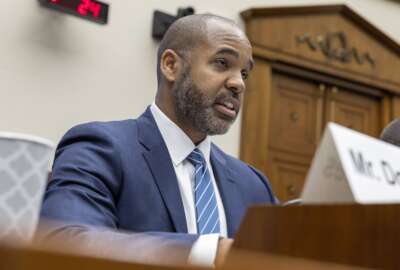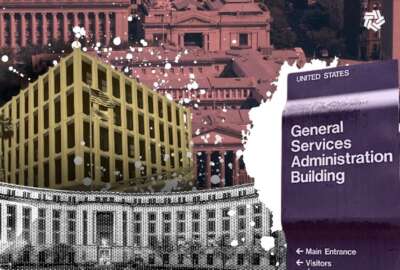Obama drives ahead on climate with government emissions cuts
By JOSH LEDERMAN Associated Press WASHINGTON (AP) — President Barack Obama ordered the federal government on Thursday to cut its greenhouse gas emissions by...
By JOSH LEDERMAN
Associated Press
WASHINGTON (AP) — President Barack Obama ordered the federal government on Thursday to cut its greenhouse gas emissions by nearly half over the next decade, driving his climate change agenda forward despite percolating challenges from Republican-led states.
By curtailing pollution within the U.S. government, Obama sought to increase political pressure on other nations to deal seriously with climate change. The U.S. and other nations will soon announce how much they’re willing to cut their national emissions as part of a global climate treaty to be finalized in December; scientists warn that if those pledges are too lax, the treaty could be too weak to stop the worst effects of global warming.
“We thought it was important for us to lead by example,” Obama said at the Energy Department headquarters, where he toured a sprawling installation of solar panels on the building’s roof. “These are ambitious goals, but we know they’re achievable goals.”
Under an executive order signed by Obama, the government must cut its emissions of the heat-trapping gases blamed for global warming by 40 percent, compared to 2008 levels — a move the White House said could save taxpayers up to $18 billion in electricity costs. Obama also directed agencies to ramp up use of renewable energy so that within a decade, roughly one-third of the government’s power consumption will come from sources like solar, wind and hydropower.
Yet it was unclear how the government would meet those targets. The White House said it was providing agencies with new tools to track their progress and “sustainability plans,” but offered no specifics.
Already, Obama’s administration has gone after most of the major sources of U.S. greenhouse gas emissions, including cars and trucks, power plants, methane from natural gas production and refrigerants. The administration was also expected to release new rules for “fracking” — hydraulic fracturing for gas or oil — on public lands as early as Friday.
Most of those regulations have faced intense opposition from the energy industry and from Republicans — including Senate Majority Leader Mitch McConnell, who wrote the nation’s 50 governors on Thursday urging them to defy Obama’s power plant rules by refusing to submit compliance plans to Washington. In contrast, Obama’s order cutting emissions within the government elicited no immediate criticism.
Although the government is the largest U.S. energy consumer, it’s responsible for less than 1 percent of annual U.S. emissions — and a far smaller chunk of emissions worldwide. Still, the Obama administration was betting that aggressive federal cuts would spur private industry and other nations to follow suit.
“The truth is the U.S. has only a few additional levers they can pull to reduce emissions,” said Paul Bledsoe, a climate adviser in the Clinton White House. “One of those is the federal government’s own emission profile.”
Major companies that sell to the federal government like GE, HP, Northrop Grumman and Honeywell also announced voluntary commitments to cut their own emissions of the heat-trapping gases blamed for global warming. IBM, for example, said it will cut its energy consumption 35 percent by 2020 and buy at least 20 percent of its power from renewably sources by that year.
All told, the government pollution cuts along with industry contributions will have the effect of keeping 26 million metric tons of greenhouse gases out of the air by 2025, or the equivalent of what about 5.5 million cars would pump out through their tailpipes in an average year, the White House said.
The global climate treaty, in the works for years, is supposed to be concluded in December in Paris, but most countries will miss the end-of-March deadline to announce their national contributions. One prominent exception: the European Union, which earlier in March vowed to cut emissions at least 40 percent by 2030, compared to 1990.
The U.S. has yet to announce its contribution to the treaty. But in a bid to build momentum, last year Obama set a U.S. goal to cut emissions up to 28 percent by 2025 — compared to 2005 levels — in a joint announcement with China that boosted hopes for an aggressive global pact.
“Certainly our hope is that we are laying forth template that other countries could also learn from and look at as well,” said Brian Deese, a senior adviser to Obama.
Under Obama’s executive order, the government must:
— Cut energy use in federal buildings 2.5 percent every year through 2025.
— Reduce the amount of water used in federal buildings 2 percent every year through 2025.
— Decrease federal vehicle emissions by 30 percent per mile by 2025, compared to 2014 levels.
— Ensure federal agencies get 25 percent of their energy — both heat and electricity — from clean sources by 2025.
— Put more hybrid and zero-emission vehicles in the federal fleet.
___
Reach Josh Lederman on Twitter at http://twitter.com/joshledermanAP
Copyright 2015 The Associated Press. All rights reserved. This material may not be published, broadcast, rewritten or redistributed.
Copyright © 2025 The Associated Press. All rights reserved. This website is not intended for users located within the European Economic Area.






